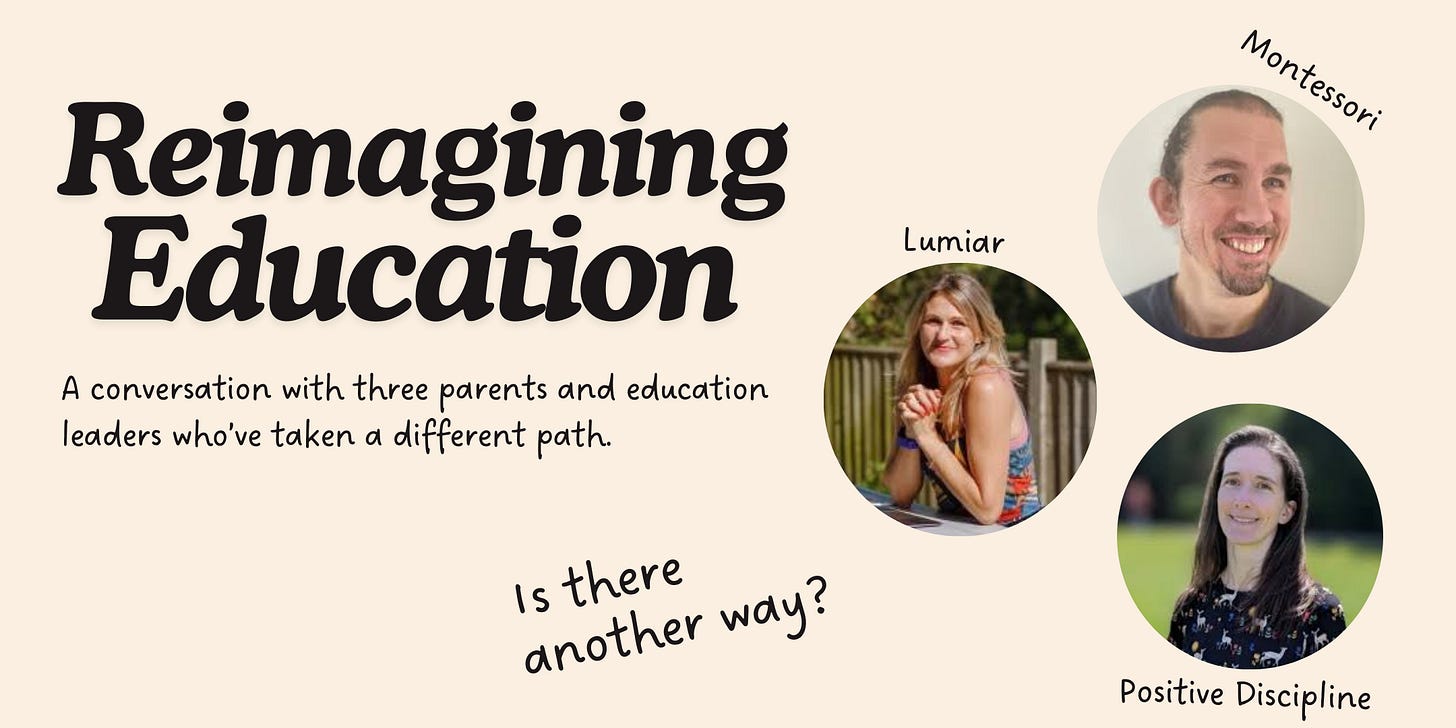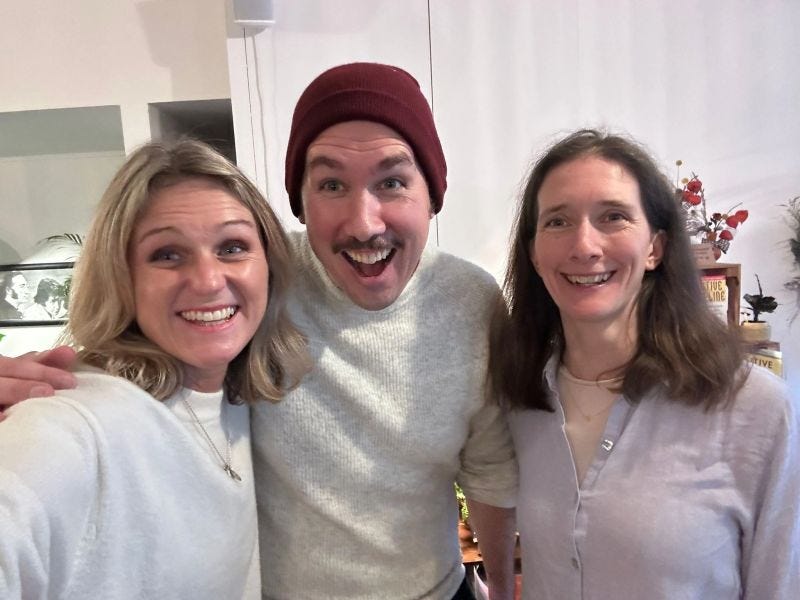This article was written as part of my NaNoWriMo challenge for November. See more information here.
The Art of Gathering
This Sunday, I hosted an event alongside Claire Walker (
) and Gillian Corke (http://gcpdtrainer.co.uk) in my new home of Bradford-on-Avon. Here is one of the posters for the event:I was nervous about the experience for several reasons: I’ve facilitated plenty of gatherings before for children, teens, teachers, and parents, but they’ve always been tied specifically to a school—this was for a paying audience I’d never met before. I was also nervous because this was on my doorstep. It felt very vulnerable bringing this aspect of myself to a community I’m still trying to make my home. I recently wrote about my goal of working towards change in my local community: here.
But it went wonderfully. We were sold out, Claire and Gillian knocked it out of the park, and our audience was engaged, thoughtful, participatory, and interesting. We gathered a mix of disillusioned mainstream teachers and local parents looking for something different. One of the most exciting questions we received was from an audience member who asked at the end, “How can we continue this conversation because I feel it has been really productive and positive?” Well, after how well this first gathering was received, we definitely plan to do more in other local towns, so watch this space.
I was also blown away by my eleven-year-old daughter Ada who asked to help us with the event. She helped create and decorate visuals for my talk, she helped set up, she circulated the room chatting with adults, she participated in group activities, she spoke up when I called on her in the Q&A section, and she helped hold up visuals for me during my speech. Afterwards, she was buzzing. She asked to come to any future events. There was an activist energy to the event, and I’m so glad she got to see me in this light, and to see herself as a welcome and valuable in the space. It just reminded me how important it is to bring young people - especially teens and preteens - into these conversations, especially as it relates to their future. My wife (Tiff) has been so good at taking Ada along to protest marches and other communal experiences since she was a baby, and I can see how much energy she draws from these experiences. It’s bonkers because many people who know Ada think of her as introverted and shy, but she loves a good crowd.
I’m also so grateful and glad we chose my local coffee shop Little Rituals for the event. I’m in the middle of reading The Art of Gathering by Priya Parker, and I think the success of the event came from applying many of her key principles: picking a space with a script, density, generous authority, good controversy, beginning with purpose, priming the guests, creating a vulnerable, equal space, and creating an opportunity for interconnection. I plan to write more about this in a future article—especially about how I think Parker’s gathering principles can be useful for educators in designing learning environments, lessons, community meetings, parent education events, and whole school events.
Starting with Purpose
I greeted everyone at the door, and Claire and Gillian circulated the space. We began with people getting coffee, mingling, and completing a group activity we’d set out. It kicked off the event with a nice hum of collective activity. On tables, we’d laid out posters with the following questions: What do see as the current problems with our education system? and What would your dream school look like? I typed up the responses to share (should have taken a photo really), but they are if anyone is interested:
We gathered everyone using my Tibetan singing bowl (what power!) and opened with a statement of purpose about why we were gathering. Here it is:
Before we hear from today’s speakers, we want to start with the reason “why” we decided to host this event. Here are a few shared beliefs that have brought the three of us together, and bring us before you here today.
Firstly, we as parents and educators believe in the power and potential of children. Not just our children, but all children, and those in future generations to come. Like Whitney Houston sang, we believe the children are our future.
We believe that our current education system limits the potential of our children: it limits and often actively harms their curiosity, their self-worth, their health, their independence, and their rights. By education system, I mean the way we educate children from 3-18 in both our mainstream state schools and traditional private schools.
We also believe that it limits and harms the potential of the inspirational teachers and leaders who’ve chosen to work in this system. We do not think the problem lies with teachers or heads of schools, it is a systemic problem.
We believe it is a broken and outdated system that cannot just be repaired or repackaged, it desperately needs to be replaced with new system.
There have been decades of activism and research that show it is a system that limits and harms children’s self-worth, social development, and curiosity. And all three of us have had first-hand experiences of the failures of this system as children, parents, and educators.
We also believe that most parents, educators, adults, and children have been forced to accept this system, and have become adjusted to it because they can’t see any other way of being.
And we are in the same boat - all three of us have children currently enrolled in mainstream secondary schools. All three of us feel that we often have to support our children in surviving a system that does not have their irreducible needs at its heart. And all three of us have seen the difference that an alternative system of education can have, as we each removed our children from mainstream schooling during their primary years.
We sometimes hear the argument that “Sure, the system doesn’t work for some kids, but it’s fine for most. I survived it.” But we would argue that all children - of all abilities, ages, cultures, and needs - are failed by this system and that we can all do so much better.
And so we are here today because we want to change this system, not just for our children - but for all children, and we believe it can be changed because we’ve worked in communities where that change has begun.
The purpose of this event is to start a conversation about what this change could look like locally and to begin building a community around progressive education in this area. We believe that large-scale, transformative social change begins with small-scale local actions. We also believe that to enact meaningful change you have to start with a compelling vision. As adrienne marie brown said, “All organizing is science fiction. We are shaping the future we long for and have not yet experienced.” So today we want you to dream big with us.
The other purpose of this event is that we want to offer practical support to local parents and educators who are looking for a different way. We will talk today about local alternatives that exist to mainstream schooling and about how to advocate for change in mainstream schools themselves.
Ok, so that’s our purpose. I hope that gives everyone a grounding in what we’ll be discussing.
Continuing the Conversation
After our opening, each of us spoke for 10-15 minutes. Claire talked about the wonderful work she is doing at Lumiar School first. What was most wonderful about her talk was that some of her staff and board members had come to support her, and they chipped in and added to her speech throughout. We could feel the energy of that community in the room.
Gillian then facilitated a participatory experience to help the audience live and feel the principles of Positive Discipline. My daughter was kind enough to tell me after the event, that she loved Gillian’s talk and thought she was the best speaker. Thanks Ada! But she’s right, it was lovely being alongside such a powerful facilitator. The room crackled with energy.
And I finished with my journey in Montessori Education. I closed with Maria Montessori’s vision, which I wrote about at the end of a recent article: here.
We finished with an interactive Q&A. Participants had recorded over 30 questions on Post-Its, so we had plenty to talk about. Here are some of the questions we received to give you a sense of what the room was pondering:
What are some of the supports you provide for children who struggle with a self-led curriculum and managing their time?
At a school where children are not taught to test, does it prepare them for a world/secondary school full of markers?
How can parents nurture intrinsic motivation?
With the current addiction to social media and children’s diminishing attention span; how do you incorporate technology and social media?
Are there still any lessons? How do you teach phonics? Some things need to be ‘taught’.
What are common mistakes that parents make that are transformed with positive discipline?
Can some of these ideas be incorporated into the national curriculum if we can’t change it? And, does EYFS already offer some of these values?
With choice, does that create limitations?
What is the transition from Lumiar or Montessori to secondary school like?
What does a fully Positive Discipline school look like? Are there any local examples?
Widening Circles
Anyway, I’m still buzzing. Onto the next one! Small actions can lead to big ripples, right? Tonight I’m facilitating a free online discussion for the Montessori Partnership on the theme of Freedom & Responsibility for anyone who is interested in joining. Please sign up to the mailing list here (scroll to the bottom) and you’ll receive a zoom link before the event.






